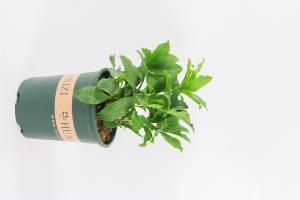Is Pool Water Safe for Plants?
Many homeowners with a swimming pool wonder if they can use the pool water to hydrate their plants. After all, it seems like a convenient way to conserve water and save money on their water bill. However, before using pool water for irrigation, it's essential to understand its potential effects on plants' health.
The Risks of Using Pool Water on Plants
The primary risk associated with using pool water on plants is the high levels of chlorine and other chemicals in the water. While chlorine is effective at killing bacteria and other harmful organisms in the pool, it can also be detrimental to plant growth. Chlorine can cause plant tissue damage, which can lead to discoloration, wilting, and stunted growth. In some cases, excessive exposure to chlorine can kill plants.
Ways to Make Pool Water Safe for Plants
Fortunately, there are ways to make pool water safe for plants. If you're determined to use pool water for irrigation, consider following these tips:
Allow the pool water to stand for 24-48 hours before using it on plants. This will give the chlorine and other chemicals time to dissipate.
Test the pH levels of the pool water before using it on plants. The ideal pH range for plants is between 6.0 and 7.0. If the pH level is too high or too low, the plants may not be able to absorb the nutrients they need to grow.
Use pool water only on non-edible plants. The high levels of chlorine and other chemicals can be harmful to edible plants and can contaminate the soil.
Alternative Water Sources for Plants
If you're concerned about the potential risks of using pool water on plants, consider using alternative water sources instead. Some options include:
Rainwater - collecting rainwater in a barrel is an eco-friendly and cost-effective way to hydrate your plants.
Greywater - water from sinks, showers, and washing machines can be reused to water plants, as long as it's free from harsh chemicals and detergents.
Treated wastewater - some municipalities treat wastewater for irrigation use, and many golf courses and parks use this water source to keep their landscapes green.
In Conclusion
In general, using pool water on plants is not recommended due to the high levels of chlorine and other chemicals in the water. However, if you choose to do so, follow the tips mentioned above to minimize any potential harm to your plants. It's also a good idea to consider alternative water sources for your plants, such as rainwater or greywater, to promote a healthy and sustainable garden.

 how many times do yo...
how many times do yo... how many planted tre...
how many planted tre... how many pine trees ...
how many pine trees ... how many pecan trees...
how many pecan trees... how many plants comp...
how many plants comp... how many plants can ...
how many plants can ... how many plants and ...
how many plants and ... how many pepper plan...
how many pepper plan...






























